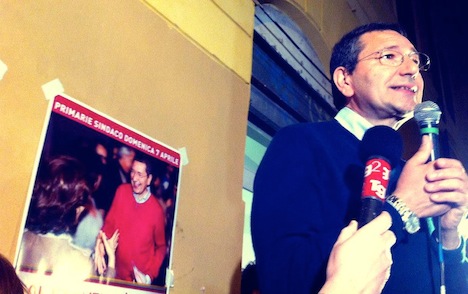If you’re were the United States and you’re like me, you spent your Memorial Day partying like it was the next Cinco de Cuatro.![]()
But in Italy, citizens were once again headed to the polls in local elections, and the most significant among the races is the mayoral race in Rome, Italy’s capital, and the ‘eternal city’ that so many centuries ago served as the center of the vast empire that stretched from Central Asia to Great Britain.
Today, while the scope of SPQR is more limited, it’s nonetheless the top municipal prize in the country. Moreover, in the fractured world of Italian politics, it’s become an even more significant prize following February’s inconclusive national elections, and the weekend’s result will lead to more political tension over the next fortnight as the top two candidates face off in a June 9-10 runoff.
With a fragile ‘grand coalition’ government between the center-left Partito Democratico (PD, Democratic Party), Silvio Berlusconi’s center-right Popolo della Libertà (PdL, People of Freedom) and former prime minister Mario Monti’s Scelta Civica (SC, Civic Change), the PD’s Ignazio Marino (pictured above) and the PdL incumbent, Gianni Alemanno, will spend the next 14 days in a direct contest between the two dominant parties of Italy’s government.
While the mayoral race has been viewed as a test of Berlusconi’s enduring popularity, the campaign has focused more on local issues and the personalities of the two major candidates, Marino and Alemanno. The more significant effect is that while prime minister Enrico Letta looks to his second month as Italy’s premier, and the coalition government attempts to craft a new election law, its two largest parties will be fighting against each other in a high-profile election for the next two weeks. It’s hardly a recipe for good governance in a country with little recent experience of consensus-driven ‘grand coalitions,’ like in The Netherlands or Germany.
In early results, Marino had won around 42.60% of the vote, with Alemanno trailing at 30.27% support. Marcello De Vito, the candidate of the opposition Movimento 5 Stelle (M5S, the Five Star Movement), was far behind in third place after a disappointing result for the protest movement in many of the weekend’s local elections.
Marino is somewhat of a rising star within the Democratic Party — a former organ transplant surgeon, Marino came to politics in 2006, winning election as an Italian senator. Since then, Marino has become one of his party’s chief voices on national health care.
With Marino just 7.4% short of outright victory last weekend, Alemanno seems unlikely to emerge from the runoff victorious, though he’s certain to spend the next two weeks fighting a vicious campaign for reelection. Alemanno, with ties to Italy’s far right, was always somewhat out of step with Rome’s centrist electorate after two two-term stints by moderate leftists, Francesco Rutelli and Walter Veltroni.
Alemanno won a narrow 2008 election victory against Rutelli by emphasizing law-and-order issues, and his victory was somewhat marred by the support of supporters who chanted ‘Duce! Duce!‘ upon his victory five years ago, highlighting his ties to the neo-fascist right. Since taking office, he passed an ordinance banning prostitution on the streets and has emphasized deporting illegal immigrants who commit crimes, while receiving criticism for segregating Roma minorities in camps far beyond the city’s center. He’s also faced the slings and arrows that accompany any big-city mayor — less money to fund municipal services in an era of economic recession and austerity, criticism that his government didn’t respond adequately to Rome’s 2012 snowstorm and attacks that Rome’s burdened subway system is falling apart. Continue reading Rome mayoral race heads to tense June runoff between center-left, center-right coalition partners



